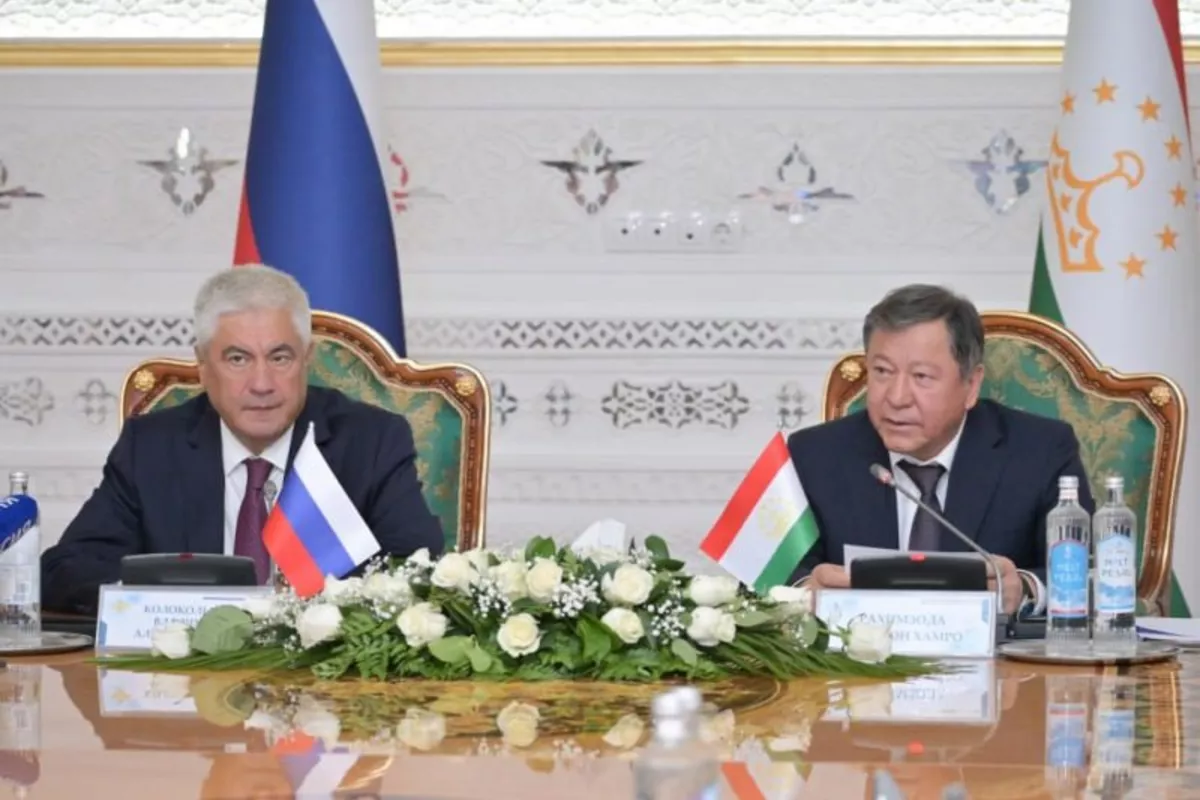
photo: Asia Plus
Russian Interior Minister Vladimir Kolokoltsev has announced that Russian authorities detained 400 Tajik nationals wanted by Tajikistan’s Interior Ministry in just the first eight months of 2025.
The announcement came during a joint board session of the Russian and Tajik interior ministries, held in Dushanbe, The Caspian Post reports via Tajik media.
In his opening remarks, Kolokoltsev thanked his Tajik counterpart, Ramazon Hamro Rahimzoda, and the host delegation for their warm welcome, noting the steadily expanding partnership between the two ministries. He praised the implementation of previous joint agreements, which he said had significantly improved operational coordination.
“This progress is the result of close collaboration and the consistent implementation of joint decisions. Our departments now interact more effectively than ever,” Kolokoltsev stated.
He highlighted the dramatic increase in arrests this year compared to 2024, when approximately 260 wanted individuals were detained. One of the key drivers of this success, he noted, has been Tajikistan’s expanded sharing of biometric data-particularly photographs of fugitives-which has greatly improved the effectiveness of identification systems used by Russian law enforcement.
Kolokoltsev also addressed the challenges posed by cross-border crime, warning that changes in citizenship should not serve as a shield against prosecution. He called for continued joint investigative operations and enhanced coordination between task forces, pointing to the legal and institutional frameworks that already facilitate this level of collaboration.
A central theme of the meeting was the role of the Interstate Information Bank, a major database shared among Commonwealth of Independent States (CIS) members. The system now contains more than 160 million records, making it the most widely used law enforcement database across the CIS.
“In the face of mounting threats from terrorism, extremism, and organized transnational crime, the relevance of this database is greater than ever,” Kolokoltsev said.
The session concluded with the approval of a new joint action plan, outlining future areas of cooperation and reaffirming both countries’ commitment to upholding law and order, strengthening security, and combating cross-border criminal activity.
Share on social media